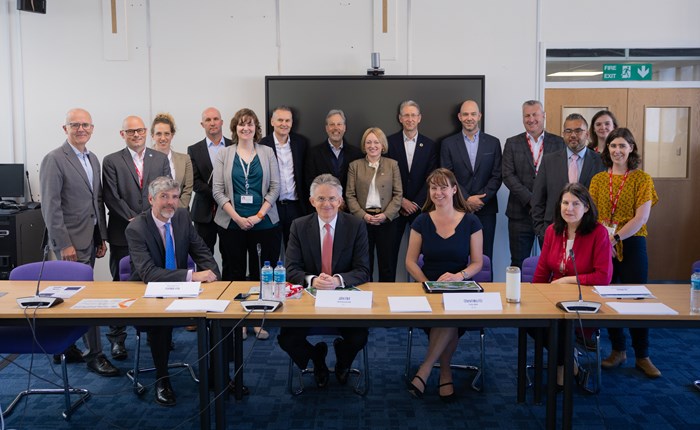Net zero partnership demonstrates potential for growth of UK’s vehicle charging infrastructure
Published: Friday 26 May 2023
The West Midlands Combined Authority (WMCA) is one of three areas of the UK looking at how the public and private sectors can work together to help speed up the growth of the UK’s infrastructure for zero emission vehicles.
As a recognised leader in regional energy infrastructure strategy, Energy Capital, which is part of the WMCA, has been working with the Local Low Carbon Accelerator (LLCA) initiative on a set of recommendations to help other local and combined authorities find new ways to reduce the cost and time it takes to get chargers connected to the grid.
Meeting in Birmingham on Wednesday 24 May, the group – along with energy industry and business leaders – set out the framework for better and earlier collaboration between the transport and energy sectors, and local planning teams, to ensure decisions on the locations of key infrastructure are made in a timely manner and fully consider the power network capacity required to meet demand.
The LLCA initiative has been established by four members of the Prime Minister’s Business Council – Lloyds Banking Group, Octopus Energy, Shell, and National Grid.
Their aim was to bring together experts from the private and public sectors to identify solutions that will speed-up delivery of essential infrastructure schemes, help reduce carbon emissions and improve energy independence, and ultimately boost jobs and regional growth.

John Flint, CEO at the UK Infrastructure Bank, and Cheryl Hiles, director of Energy Capital, which is part of the WMCA, (centre) with representatives from the Low Local Carbon Accelerator initiative and local and combined authorities.
Cheryl Hiles, director of Energy Capital, who represented the region at the roundtable, said: “Decarbonising transport will be key to the transition to net zero, but it’s absolutely vital that the right infrastructure is in place to support that.
“Energy Capital has been leading ground-breaking work looking at how you properly plan the infrastructure in the energy system to enable that transition to take place: from mapping EV charging demand to the electrification of public transport and fleet vehicles, through to the use of alternative fuel infrastructure.
“We’re delighted to be playing our part in this national debate and the partners that have been drawn together to develop these solutions demonstrate just how important these issues are.”
The LLCA report, Delivering jobs and growth through local green infrastructure projects, shows how these trial projects can be successfully scaled and implemented across the country. As part of the initiative, Leeds City Council have been examining the most effective way to finance and structure major retrofitting schemes, and Liverpool City Region Combined Authority is looking at the scalable rollout of zero emission buses.
The WMCA’s Infrastructure for Zero Emission Vehicle (IZEV) strategy will form part of the region’s emerging Local Transport Plan, which is being produced in partnership with Transport for West Midlands (TfWM) which is also part of the WMCA.
The findings will be shared with all local and combined authorities to support their own regional strategies that support the increase in zero emissions vehicles.
The roundtable was chaired by John Flint, CEO at the UK Infrastructure Bank, which offers an advisory service as well as financing to local and mayoral authorities for infrastructure projects which support local economic growth and the transition to net zero.
Mr Flint said: “The LLCA is a positive example of the private and public sector coming together to solve some of the barriers to decarbonising local infrastructure.
“We know how committed local and combined authorities are to supporting the UK’s transition to net zero, and part of our mission at the Bank is to offer assistance through our advisory scheme and by financing clean infrastructure projects which will create jobs and generate growth.”
Further enquiries
For all other enquiries from members of the public go to our contact us page: https://www.wmca.org.uk/contact-us/
